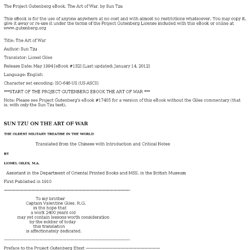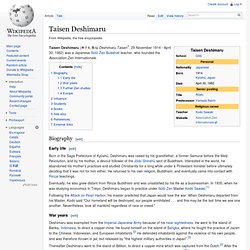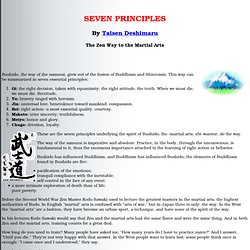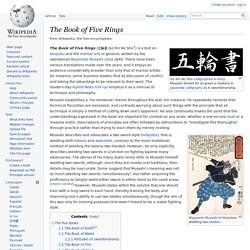

Marcus Aurelius Antoninus the Roman Emperor, by Marcus Aurelius. Thus Spake Zarathustra, by Friedrich Nietzsche. Walden, and on the Duty of Civil Disobedience, by Henry David Thoreau. Siddhartha, by Hermann Hesse. The Prince, by Nicolo Machiavelli. Www.gutenberg.org/cache/epub/132/pg132.html. The Project Gutenberg eBook, The Art of War, by Sun Tzu This eBook is for the use of anyone anywhere at no cost and with almost no restrictions whatsoever.

You may copy it, give it away or re-use it under the terms of the Project Gutenberg License included with this eBook or online at www.gutenberg.org Title: The Art of War Author: Sun Tzu Translator: Lionel Giles Release Date: May 1994 [eBook #132] [Last updated: January 14, 2012] Language: English Character set encoding: ISO-646-US (US-ASCII) Note: Please see Project Gutenberg's eBook #17405 for a version of this eBook without the Giles commentary (that is, with only the Sun Tzu text).
Translated from the Chinese with Introduction and Critical Notes Assistant in the Department of Oriental Printed Books and MSS. in the British Museum First Published in 1910 To my brother Captain Valentine Giles, R.G. in the hope that a work 2400 years old may yet contain lessons worth consideration. Vitruvius, Ten Books of Architecture. Ten Books on Architecture. I Ching. The Zen Way to Martial Arts: A Japanese Master Reveals the Secrets of the Samurai (Compass): Taisen Deshimaru, Nancy Amphoux, George Leonard: 9780140193442: Amazon.com.
Zen in the Martial Arts: Joe Hyams: 9780553275599: Amazon.com. Taisen Deshimaru. Taisen Deshimaru (弟子丸 泰仙, Deshimaru Taisen?

, 29 November 1914 - April 30, 1982) was a Japanese Sōtō Zen Buddhist teacher, who founded the Association Zen Internationale. Biography[edit] Early life[edit] Born in the Saga Prefecture of Kyūshū, Deshimaru was raised by his grandfather, a former Samurai before the Meiji Revolution, and by his mother, a devout follower of the Jōdo Shinshū sect of Buddhism.
Interested in the world, he abandoned his mother's practices and studied Christianity for a long while under a Protestant minister before ultimately deciding that it was not for him either. Eventually, he also grew distant from Rinzai Buddhism and was unsatisfied by his life as a businessman. Following the Attack on Pearl Harbor, his master predicted that Japan would lose the war. War years[edit] Deshimaru was exempted from the Imperial Japanese Army because of his near-sightedness. Further Zen studies[edit] Deshimaru quickly rejoined Kodo Sawaki. Europe[edit] Seven Principles by Taisen Deshimaru, from The Zen Way to the Martial Arts. Bushido, the way of the samurai, grew out of the fusion of Buddhism and Shintoism.

This way can be summarized in seven essential principles: Gi: the right decision, taken with equanimity, the right attitude, the truth. When we must die, we must die. Rectitude. Yu: bravery tinged with heroism. The Book of Five Rings - The Classic Masterpiece by Miyamoto Musashi - go rin no sho. The Book of Five Rings. The Book of Five Rings (五輪書, Go Rin No Sho?)

Is a text on kenjutsu and the martial arts in general, written by the swordsman Miyamoto Musashi circa 1645. There have been various translations made over the years, and it enjoys an audience considerably broader than only that of martial artists: for instance, some business leaders find its discussion of conflict and taking the advantage to be relevant to their work. The modern-day Hyōhō Niten Ichi-ryū employs it as a manual of technique and philosophy. Musashi establishes a "no-nonsense" theme throughout the text.
For instance, he repeatedly remarks that technical flourishes are excessive, and contrasts worrying about such things with the principle that all technique is simply a method of cutting down one's opponent. Musashi describes and advocates a two-sword style (nitōjutsu): that is, wielding both katana and wakizashi, contrary to the more traditional method of wielding the katana two-handed. A Book of Five Rings Quotes By Miyamoto Musashi. Art of War by SunTzu [SunZi] -English Hypertext. Translated from the Chinese By LIONEL GILES, M.A. (1910) [This is the basic text of Sun Tzu on the Art of War.
![Art of War by SunTzu [SunZi] -English Hypertext](http://cdn.pearltrees.com/s/pic/th/suntzu-sunzi-english-hypertext-47722032)
It was extracted from Mr. Giles' complete work as titled above. The commentary itself, which, of course includes this work embedded within it, has been released as suntzu10.txt (or suntzu10.zip). This is being released only as an adjunct to that work, which contains a wealth of commentary upon this text.] The Art of War has 13 chapters. Each chapter is hyper-linked to its corresponding Chinese text. Writings of Confucius - Kong Zi [Kung Tze]- China the Beautiful.
LaoTze - TaoDeJing. The Secret of the Golden Flower. Translations[edit] "Gathering the light" -- an illustration of the first stage of meditation There are significant differences between the Wilhelm and Cleary translations. Wilhelm was introduced to the work by his Chinese teacher,[2] while Cleary arrived at his own translation and interpretation. Some translations are given with the word mystery for the word secret in the treatise's title. Classic works of Chinese philosophy preserve a spectrum of pre-modern science, from a time when philosophy and science were less distinct than they appear to be now.[3] The foundations of their teachings often appear incompatible with modern science, yet the teachings are of significant efficacy in providing a degree of awareness that might otherwise remain obscured by modern society’s attention to more stringent standards of rational thought (for a further discussion of possible benefits, see Meditation). Meditation Technique[edit] Sitting primarily relates to a straight posture.